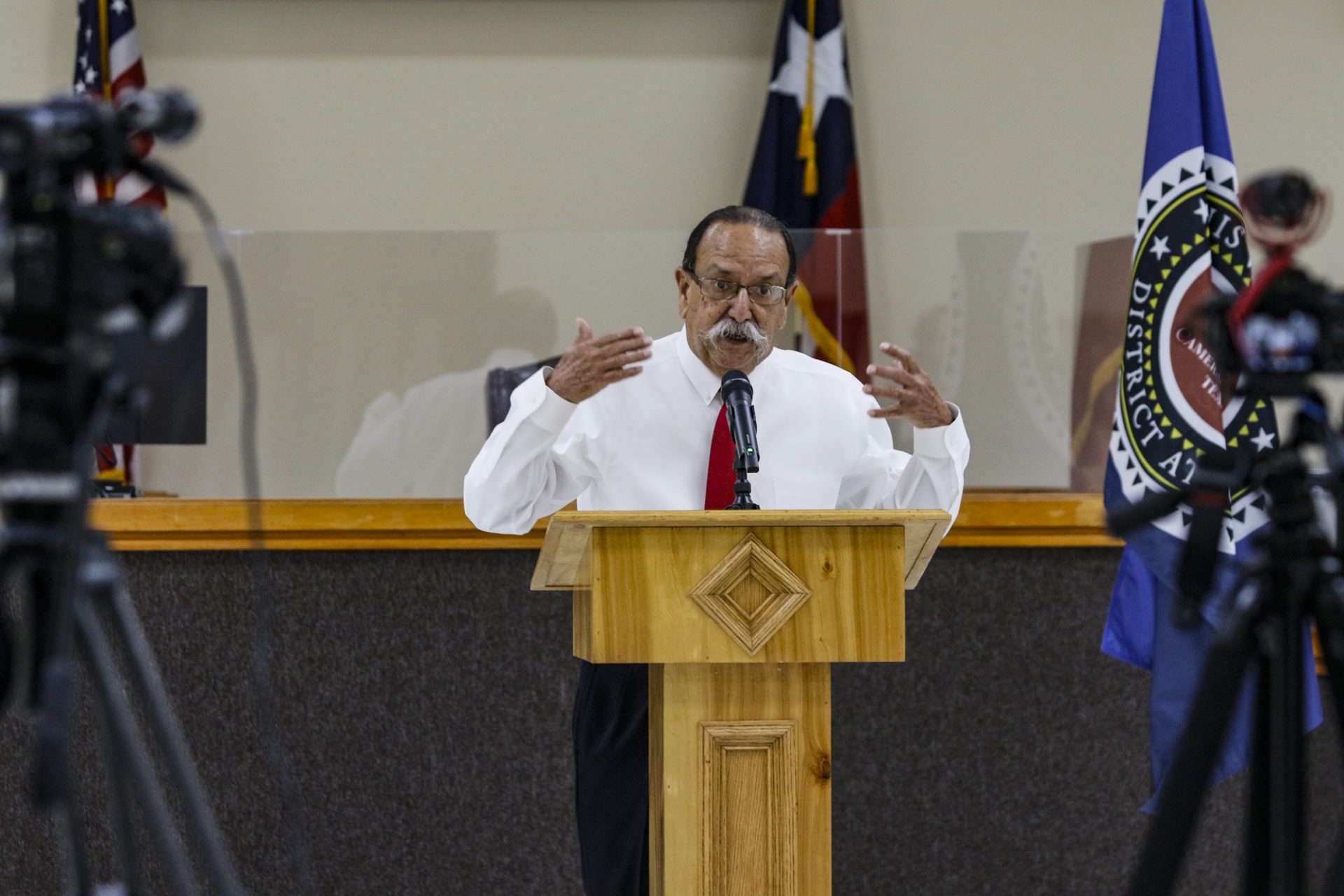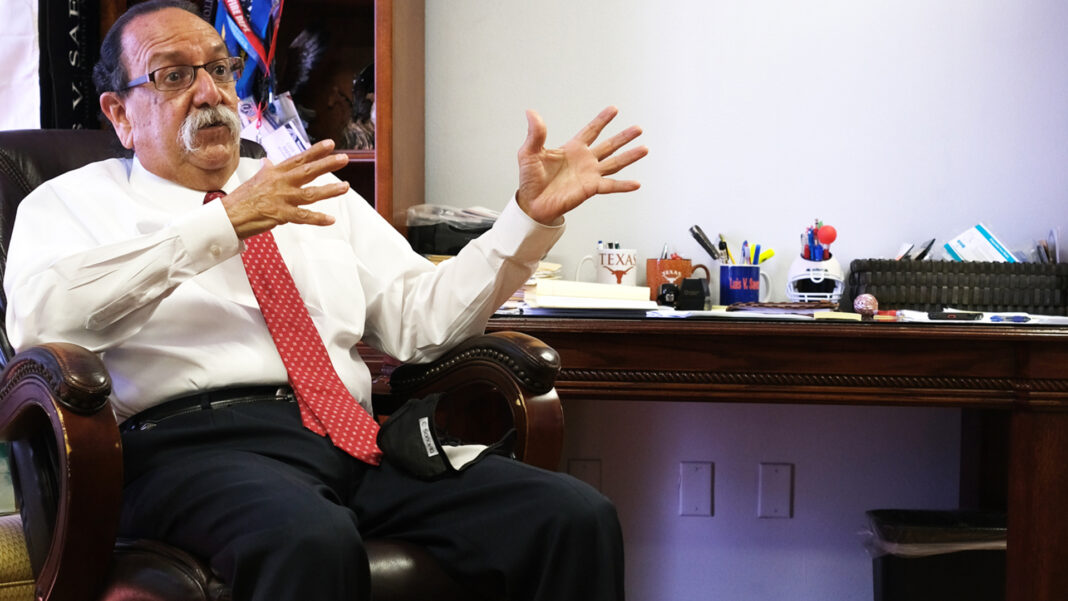|
Only have a minute? Listen instead
Getting your Trinity Audio player ready...
|
HARLINGEN – “We have a $700 check for you. We just need your information.”
“You have until tomorrow to extend the warranty on your vehicle. Call us today.”
“Your son is in jail. Send us $600 to get him out.”
Sound familiar? Scammers seem to have a negative genius for inventing ways to defraud the unsuspecting, using ever-evolving technologies to generate new strains of ill-gotten gain.
While 21st century technology — email, apps, text messages and smartphones — is continuously changing, the sleaze of deception is nothing new. Fraud has always been on the prowl, hunting for its newest victim. The Bible stories, Greek mythology, Arabian Nights and other classical texts are filled with tales of the trickster, the deceiver, the swindler.
However, never have so many fraudsters had so much access to so many people as they do today with the arrival of technology. Scammers everywhere come up with all manner of ways to trick someone into handing over their cash, all from a computer that might be at the next door neighbor’s or as far away as Malaysia.
“They’re very very good,” said Cameron County District Attorney Luis V. Saenz.
“The scammers sit behind a computer 24 hours a day, and they come up with ideas. And they’re very good at it,” Saenz said. “There’s no one method or one rule to spot a scammer. There are certain little boxes that you can check.”
Letters with professional letterhead can convince potential victims that a professional car dealership is offering to extend their warranties — for a price, of course. And if you don’t respond, they’ll follow up with a phone call.
Don’t fall for it, says Saenz.
“Everybody knows one of the most prolific scams is extending the warranty,” he said. “Just the fact that they’re calling asking you to extend the warranty, the people that actually hold the warranties don’t do that.”
The scams come in an endless number of tricks.

They freeze your computer and sound an alarm and say it’s been infected by a virus — and charge you $500 to unfreeze it. They’ll send you checks from non-existent banks and ask you to buy gift cards. They can even call you from the South China Sea from a number you recognize.
While there’s no one particular rule to spot a scam, there are a few simple rules to follow to keep yourself safe.
“The best advice I can give anybody is do not provide any information,” Saenz said. “Do not send money, do not give away information.”

Scammers can target the most vulnerable, the not so vulnerable and people at all levels of society. Professor Enriqueta Lopez Ramos, 91, and her husband Miguel in San Benito received a call awhile back from someone who sounded like their dear friend Pedro.
“He’s from Mexico City. We’ve been very very close friends; they visit here all the time,” she said. “They said he was at the airport being held because he had taken somebody else’s suitcase, and he needed $600 so that he could be bailed out.”
Well, Pedro is an accomplished engineer and somehow Ramos could not see him walking off with someone’s luggage. So, while Miguel was on the phone speaking with “Pedro,” Ramos quickly dialed the real Pedro who was actually in Monterrey, unbeknownst to the scammers. He quickly assured her everything was fine, cutting the scammers off in their tracks.
Fear of incarceration is a common tactic used by scammers everywhere, said Deputy Chief Alfredo Alvear of the Harlingen Police Department.
“There are apps in which they can mimic another phone,” Alvear said. “Recently we were told they were using our police department number to threaten people with warrants. Our number shows up so people think it’s our number but in reality it’s through an app.”
With that simple police department number showing up on caller ID, the scammer can go to work on the receiver’s fears.

“They’ll tell them that they need to pay their warrant fees or they are going to go to their house and arrest them,” Alvear said. “That’s one scam that’s been done here through the police department.”
It’s much the same at the county level, Saenz said.
“There have been scams where they get a message from the district clerk saying they’ve been selected for jury duty, but you’ve got to submit some money to finish processing your name,” Saenz said.
He just learned also of another scam involving the use of the Cameron County letterhead to inform an individual there is a lien on his property. The letter further states the individual must send $250 to have that lien removed.
These felonious crimes range from third-degree to first degree depending on the amount of money involved. Unfortunately, they are very hard to investigate, much less prosecute.
“By the time we have a victim call us, the money has been sent, and that’s just the gist of it,” Saenz said. “There’s no footprint, there’s no fingerprint. There’s just the text on the phone, and we can try to go down that road. But at some point they’re so good at it that the road ends and there’s nothing there.”
He recalled one case involving millions of dollars that his office was able to follow all the way to some portal in Washington D.C. and then it stopped.
“It fell apart,” he said. “We couldn’t go beyond that.”
He and Alvear emphasized the same basic truths to avoid falling victim to these people: Do not give money or information. And if it’s too good to be true, it probably is.





